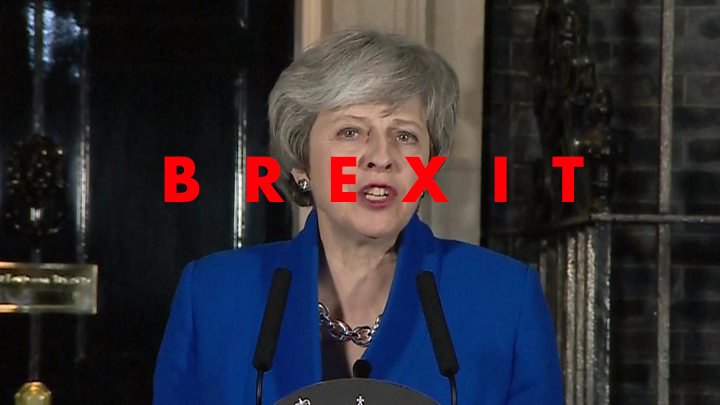Brexit brings more confusion
A failed vote of no-confidence leads to more can-kicking on brexit
Theresa May survived a no-confidence vote from her government on Wednesday, which would have forced her to resign from her position as Prime Minister. Leader of the ongoing Brexit, May’s continued leadership will see further deliberation and confusion surrounding the deal.
The no-confidence vote occured after a plan to officially withdraw from the European Union (EU) was proposed and shot down on Tuesday. The rejection was expected, but the sheer scale at which it was voted down – 432 to 202 – was unprecedented in the history of British Politics. Jeremy Corbyn, leader of the Labour Party, subsequently called for the no-confidence vote against May.
May, despite record unpopularity within and without her party, survived the vote due to hard partisan support for her and her Brexit deal. Had she been removed, a general election may have been triggered, leading to a redistribution of power within the parliament. It is likely that the Conservatives and their coalition feared a general election, which would have, due to the unpopularity and chaos surrounding Brexit, led to a loss of seats within the parliament.
One of the most difficult and controversial components of May’s proposed deal relates to the border between Northern Ireland, a British holding, and the Republic of Ireland. Free trade and travel has created a porous border between the two areas, helping to create peace between the historically hostile Protestants and Catholics of the area. Withdrawl from the EU would also see a withdrawal from the free-movement Schengen Zone and the free-trade Single Market, meaning an open border between Ireland, an EU member, and Northern Ireland would become implausible.
May is expected to put forward another iteration of her deal next Tuesday. Between now and then, politicians will be allowed to propose and ratify amendments to modify the plan. Amendments are likely to relate to mediating the border between Northern Ireland and Ireland and handling British expats within the EU and European expats within Britain.
It is becoming increasingly likely, however, that the UK will be forced to leave the EU with no negotiated deal. If a plan is not passed and negotiations not met by March 29th, then the island will be automatically ejected from the Union. In that case, the UK, overnight, will lose important monetary benefits, trade deals, and decades of regulatory legislation. For Britain, it is, essentially, the worst case scenario.
German Chancellor Angela Merkel has stated that she is open to further negotiations, and May has reaffirmed her commitment to making the plan work.

I'm Jake Neuffer, the 2018-2019 Outlook Editor in Chief. I try to write about politics, international relations, and culture whenever I can. I write about...









